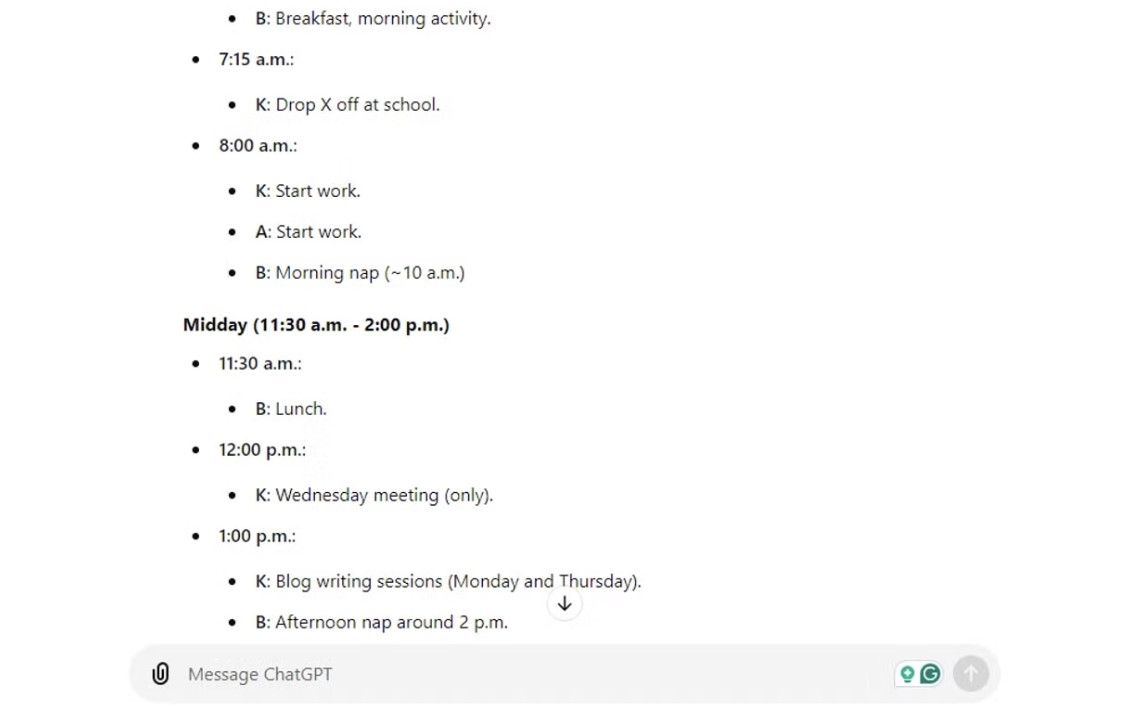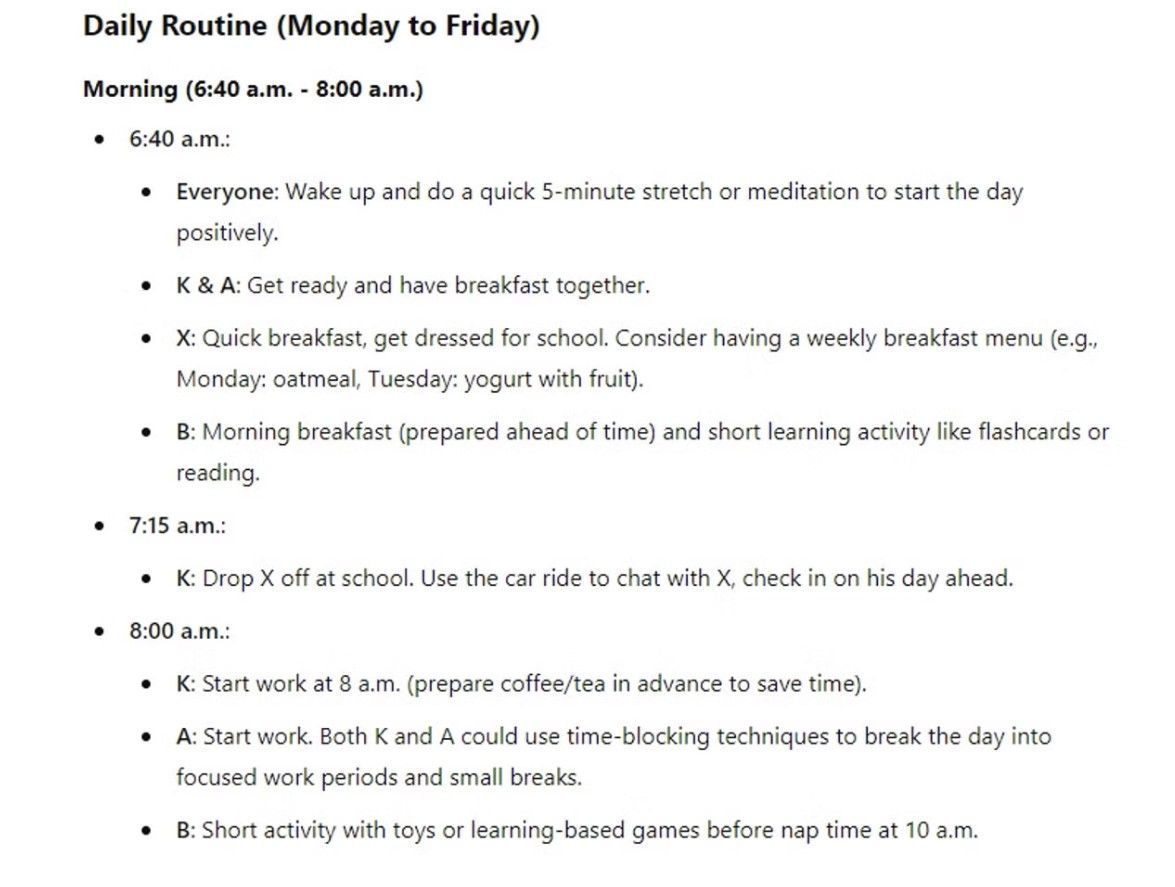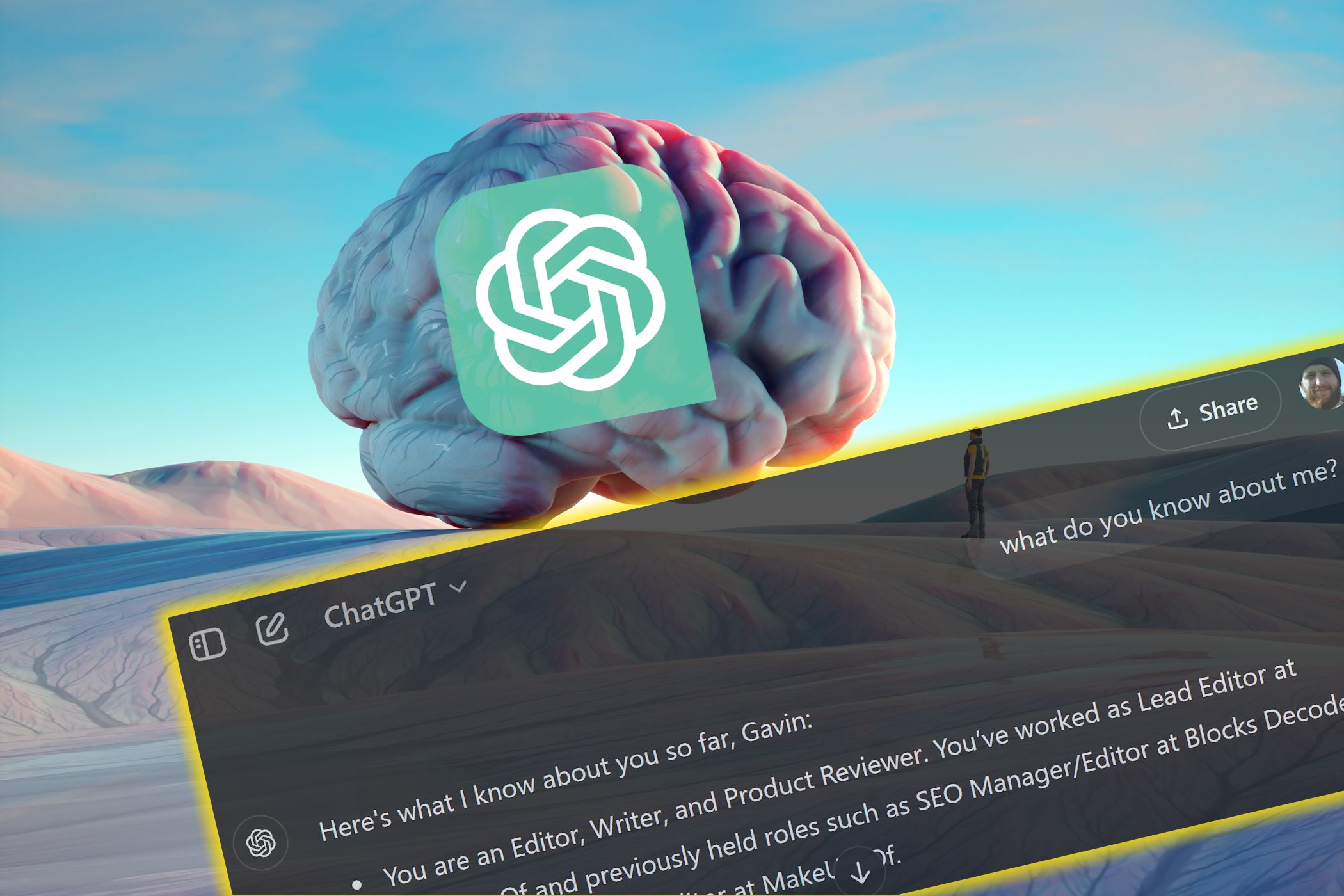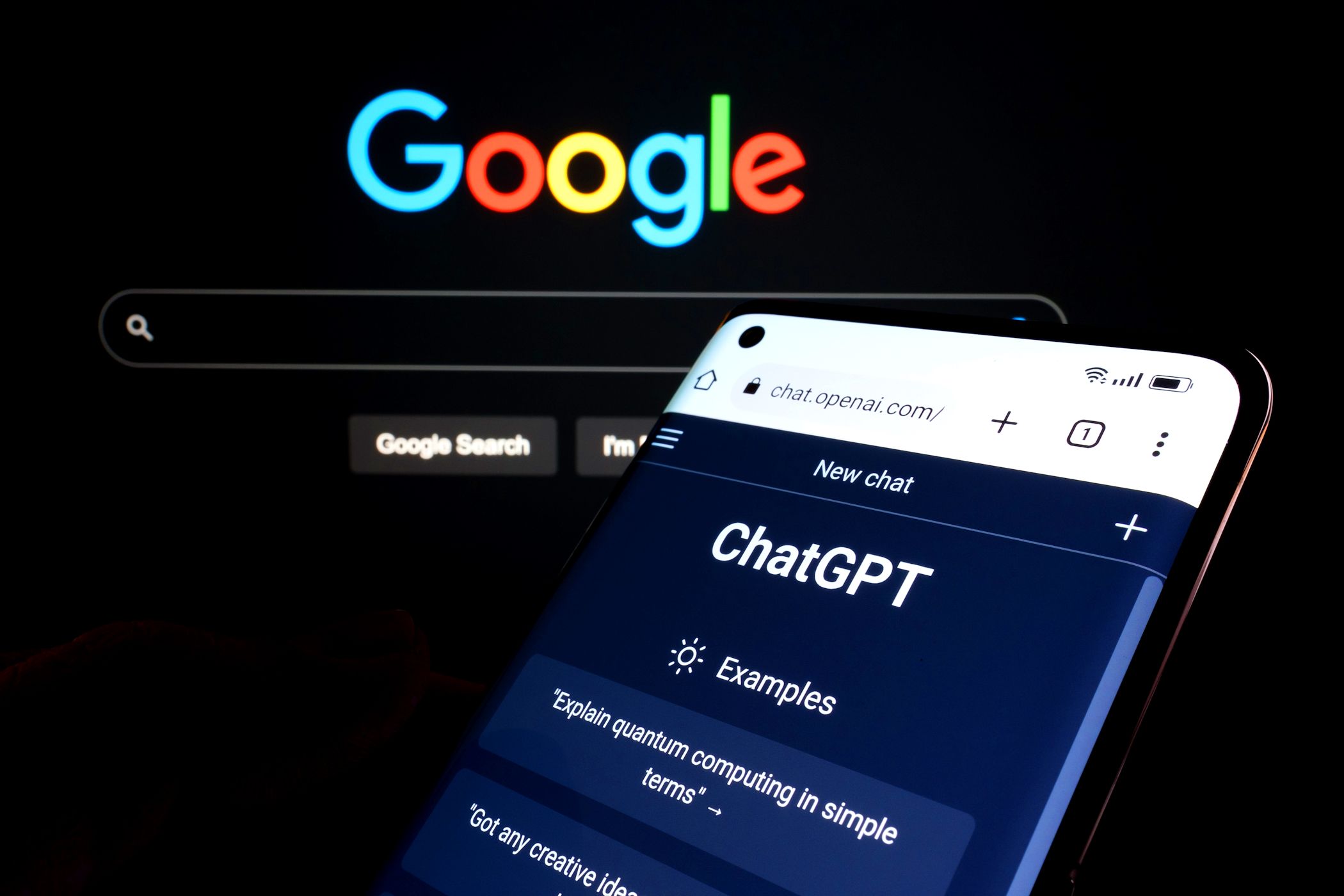Managing a busy weekly schedule for a family of four can sometimes feel like trying to juggle blindfolded. There are always so many things going on, from professional commitments to personal errands and kid’s activities, making finding a balance a real challenge. There are all sorts of tools out there that can help, but innovative solutions are always welcome. One thing I tried recently that has really helped? ChatGPT!
Initial Setup
Yes, you read that right. I am already using the AI to help decide what I eat, so why not use it to help boost my and my family’s organization? By integrating this tech into my scheduling routine, I can take a bit of chaos out of my calendar and craft weekly plans that cater to our lives.
The first step in using ChatGPT as a personal scheduling assistant is creating the foundation. My goal was to leverage ChatGPT to not only organize my schedule but also create a more mindful approach to time management.
Before starting, I sat down and came up with some clear personal goals that I wanted for organization and productivity. Things like making time for myself, meeting work goals, scheduling out daily and weekly activities, etc. Overall, I wanted my new schedule to increase time efficiency, reduce stress, and prioritize tasks with more clarity.
Now, I will admit that while I was pretty excited to see what ChatGPT would come up with, I did temper my expectations. This isn’t necessarily what the AI is designed for, so I knew I would have to tweak it a bit to get it to do what I wanted. So don’t expect an out-of-the-box solution, but rather a crafted guideline for your days and weeks.
Utilizing ChatGPT for Planning
I started off by coming up with a list of daily and weekly events that needed to be taken into account. Wake-up times, getting my kid off to school, meetings, and due dates on projects all went onto this list sort of willy-nilly. I did make sure to mark down who needed to do what so that the AI could group things and events together appropriately. I even gave priority to a couple of tasks, especially when they overlapped with one another.
Then, I fed all that into ChatGPT directly, and it spat out a daily and weekly breakdown for me. The result was surprisingly easy to follow, but also lacking in depth. To alleviate this, I started really going in and tailoring the experience while taking notes on what worked and what did not.
What I discovered during this process was that ChatGPT does need a lot of hand-holding to get a good result. You need to “teach” it what needs to be prioritized, and encourage it to reason out ways to make things easier for you.
Telling it to “prioritize family time” or “come up with ways to manage time more efficiently” got good results; ChatGPT would offer suggestions on activities to try or ways to streamline work in ways that were actually a huge help during the week.
Benefits of a ChatGPT Schedule
Now, the advantages of ChatGPT are sort of obvious. First of all, I didn’t have to sit down and plan out every hour myself—instead, the AI did it for me and listed it out in an easy-to-follow manner. I also noticed, as I went through the week, that I saved quite a bit of time just by sticking to the schedule.
You see, I have never been great at time management. I will spend an extra hour gaming instead of cleaning or might lose myself in working on one project at the detriment of others. Or I might not notice that it is time to make dinner until it’s late. But by having every day listed out I could see how my time and energy were being allocated and, by following that structure, felt like I was actually getting things done.
Furthermore, I felt like my whole family had more time and were more on track. By having everyone do chores at specific times, we had more time to spend on shared activities. Or by following the suggestions, such as meal prepping on a certain day to save time later in the week, what time was spent was being used more wisely.
Challenges and Lessons Learned
Despite the “pros” of this process, it wasn’t without its hurdles. There were certain limitations encountered, such as ChatGPT’s initial difficulty with handling intricate, multi-layered tasks that required more than one person or overlapping times. I had to implement adjustments and provide clear instructions, gradually increasing the AI’s effectiveness rather than intuitively knowing what I needed.
In the end, while I wouldn’t say ChatGPT is perfect, I would say that AI-assisted scheduling was not a waste of time. Realistically if you are someone like me, someone who finds it hard to sit down and map out everything day by day or coordinate everyone’s schedules without outside help, it is a real win. It takes the heavy lifting out of scheduling, as long as you know what prompts to use to help refine it.
My advice? ChatGPT is a great supplement that can really help streamline your schedule. However, if you are someone who is already decent at scheduling and has a good system in place it might not be worth replacing your already proven method.

















